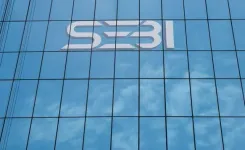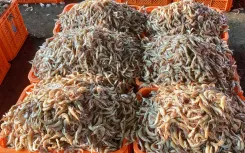Hyundai Motor's CEO Emphasizes the Importance of Addressing Challenges Amid Trump Tariff Issues

Synopsis
Key Takeaways
- Strategic Adaptability is crucial for growth in a challenging market.
- Hyundai's localization strategy aims to mitigate tariff impacts.
- New EV models and production facilities are on the horizon.
- Partnerships with tech giants will enhance Hyundai's competitive edge.
- Investment in electrification reflects long-term commitment.
Seoul, March 20 (NationPress) Jose Munoz, the CEO of Hyundai Motor, on Thursday pointed out the increasing trade tensions and protectionist measures as significant hurdles for the global automotive sector in 2025, calling for strategic flexibility to sustain the company’s growth trajectory.
During Hyundai Motor's annual general shareholders' assembly in Seoul, Munoz highlighted how rising geopolitical threats, economic instability, and variable foreign exchange rates are affecting automakers globally, as reported by Yonhap news agency.
"The business landscape in 2025 is anticipated to be even more demanding, with increasing geopolitical and trade uncertainties," Munoz stated. "With heightened volatility in foreign exchange rates and U.S. interest rates, we are facing intensified trade tensions and protectionism."
These comments come as global automotive companies, including Hyundai Motor Group, prepare for potential reciprocal tariffs on their exports to the United States under President Donald Trump.
In light of concerns regarding U.S. tariffs, Munoz reaffirmed Hyundai's dedication to localized manufacturing as a safeguard against changing trade regulations.
He emphasized the imminent inauguration of the Hyundai Motor Group Metaplant America (HMGMA) in Georgia, scheduled for later this month, highlighting its significance in strengthening the company’s presence in the U.S. market.
"The choice to invest in HMGMA was made during the first Trump administration," he remarked, emphasizing that Hyundai's localization strategy in the U.S. would help cushion against possible policy changes.
The Georgia facility is set to increase production of Hyundai's Ioniq 5 and Ioniq 9 electric vehicles (EVs), with plans for hybrid vehicle production as well.
When queried by Yonhap News Agency about whether Trump would attend the HMGMA completion ceremony in Georgia, Munoz declined to comment, stating, "no comments today," as he departed for his office following the meeting.
South Korean media have reported that Hyundai is attempting to invite Trump to the ceremony, along with other prominent figures from the current Washington administration. The event is anticipated to be attended by Georgia Governor Brian Kemp.
Munoz also elaborated on Hyundai's region-specific strategies to navigate regulatory and market obstacles.
In Europe, the company plans to launch new EV models like the Casper Electric and Ioniq 9, while ensuring adherence to regional environmental standards.
The CEO mentioned that the company is setting up a complete knockdown unit assembly base in Saudi Arabia with local partners, which will act as a hub for Hyundai in the Middle Eastern marketplace.
Concerning China, Munoz acknowledged the difficulties in the largest auto market globally, where Hyundai and other foreign automakers are contending against domestic EV brands.
He stated that Hyundai will modify its production capacity in China and introduce new EV models designed for local consumers.
Additionally, Munoz reiterated Hyundai's long-term commitment to electrification, underlining the company's $90 billion investment plan to develop 21 new EV models by 2030. He also pointed out the ongoing expansion of its hybrid vehicle range and its pledge to advance battery technologies.
Amidst rising competition, Munoz also highlighted Hyundai's strategic alliances. He mentioned that the company is collaborating closely with partners such as Amazon, General Motors, and Waymo to enhance its technological capabilities in critical sectors.








